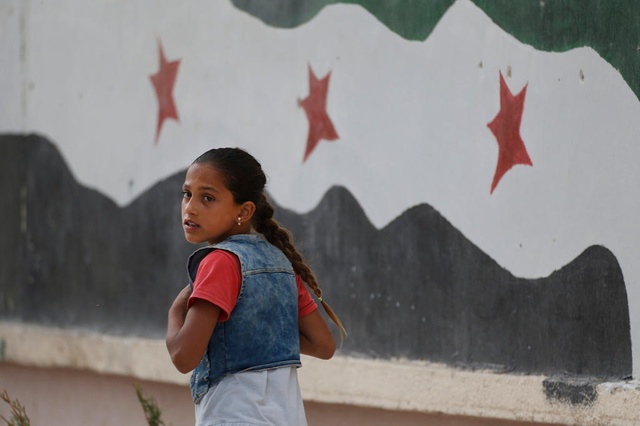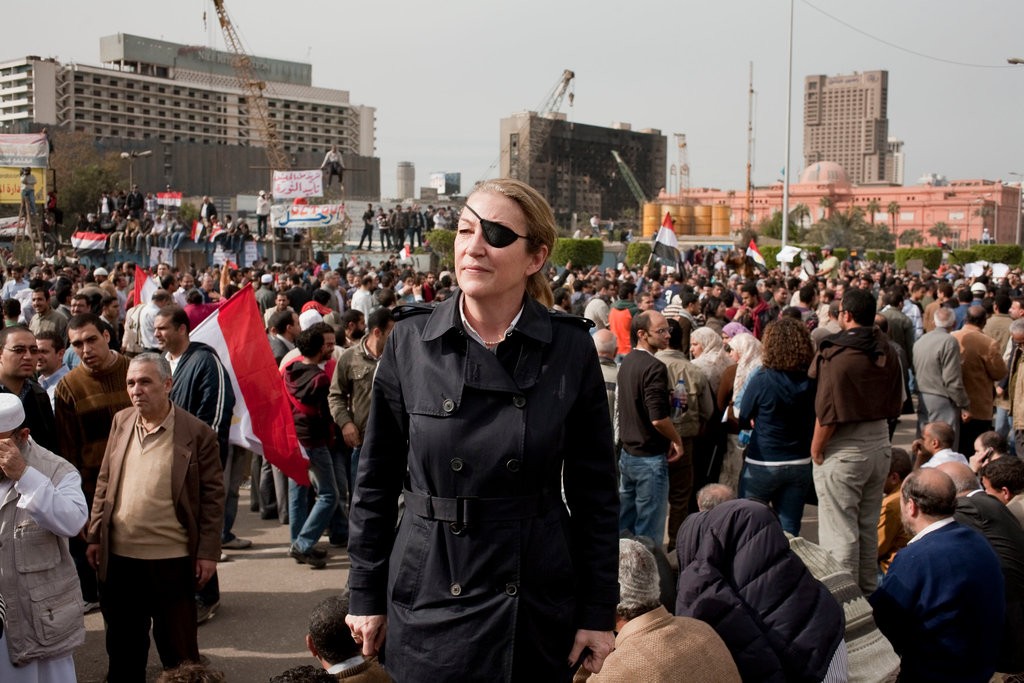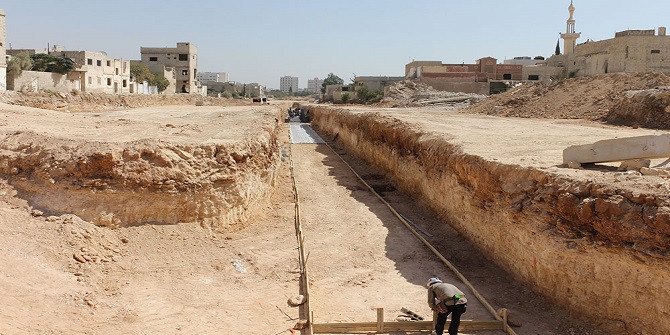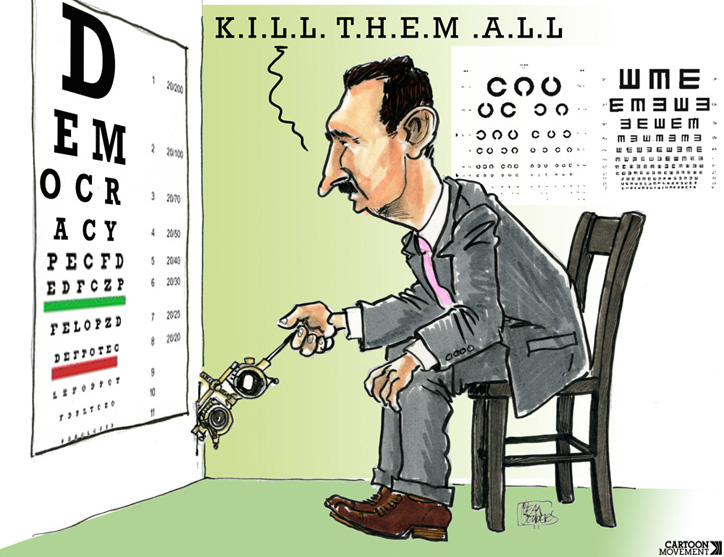

March 18, 2019
Brussels Donors’ Meeting: Much A Do About Nothing
The European Union and the United Nations co-chaired the third Brussels Conference on Supporting the future of Syria and the region, on 12-14 March 2019. While the Conference achieved some good results, it overlooked other issues that we believe are very important. 57 countries and more than 20 international organisations and UN agencies came together to participate in an international conference on supporting the future of Syria and the region. On 12-13 March, the 'days of dialogue' brought together more than 1000 participants: civil society representatives from Syria and the region, ministers and decision-makers from countries neighbouring Syria, donor countries, regional organisations, UN agencies, and the Red Cross and Red Crescent Movement. They discussed key themes affecting the Syrian people and the international response to the crisis. The conference renewed its rejection of normalization with the regime, but some European diplomats expressed concern about changing the direction of international aid and directing it to areas of the regime. Part of the funding provided by the European Union and its country members should be used for the reconstruction of Syria, which was devastated during eight years of war, but the head of European diplomacy, Federica Mogherini, warned that these funds "will only be transferred if a credible peace process begins in Geneva Under the auspices of the United Nations ". "The Syrian regime must be present at the negotiating table in Geneva," said Belgian Foreign Minister Didier Reynders. "We hope that in the coming months we can move the political situation. That would allow the start of reconstruction and the return of refugees," he said.


February 12, 2019
The up-and-down relationship between civil society and the Syrian opposition
In principle, the civil society needs to be apolitical. However, in a situation like Syria where the regime of Bashar al-Assad has taken a hostile position towards his people, which made him one of the most war criminal in history. The Syrian civil society therefore found itself obliged to play a political role. But it also found itself in this position because of the poor performance of the Syrian opposition. The latter was interested in its little games and gains more than being interested in the public cause. The Assad regime has been brutal and criminal; the opposition has been little and petty, if we want to be cautious in using our words. The civil society therefor had not other option but to have a say in the political arena.


February 4, 2019
The Caesar Bill is a Step in the Right Direction
Caesar’s Law should not be portrayed as a victory for justice in Syria. It is a good step on the right path, but the Syrian people must hold on to this and develop it until the day comes when they can see justice and their oppressors are judged and condemned


February 2, 2019
The Assad’s Regime Is Held Accountable for the Killing of Journalist Marie Colvin: An Extrajudicial Killing
Pro-justice welcomes a US federal court that has held the government of Syria’s dictator Bashar al-Assad liable for the targeting and killing of an American journalist as she was reporting on the shelling of a district of Homs in 2012. The case was looked at in a civil court in Washington, which issued a decision to award $302.5 million to relatives of the journalist, Marie Colvin. Judge Amy Berman Jackson, in her ruling, called the Assad regime’s policy as a “longstanding policy of violence” that aimed “to intimidate journalists” and “suppress dissent.” She called the killing of Colvin as an "extrajudicial killing". The lawsuit described the attack as part of a plan orchestrated at the highest levels of Assad’s regime to silence local and international media “as part of its effort to crush political opposition.” Some of the evidence supporting the lawsuit was provided by two defectors from the regime. Lawyers for the family included as evidence a copy of an August 2011 fax that they said was sent from Syria’s National Security Bureau instructing security bodies to launch military and intelligence campaigns against “those who tarnish the image of Syria in foreign media and international organizations.” Colvin, who was 56 when she died, was killed in the besieged city of Homs, Syria, alongside French photographer Remi Ochlik, 28, when the building they were in was shelled.


January 31, 2019
From the Social Market Economy to the National Partnership: The conflict elite and public-private partnerships in a post-war Syria
Nobody in Syria is talking about all of the policy documents being produced in the West about Syrian reconstruction


January 21, 2019
Tell Italy: No shaking hands with war criminals
forcibly disappear thousands of civilians. Restoring diplomatic relations will only serve to enable Assad’s crimes. Just this weekend the White Helmets reported several civilian casualties in Idlib due to Syrian and Russian airstrikes


January 17, 2019
Lies and Fact: The Syrian Regime is the Major children killer in Syria
Very few governments lie more than the Assad government does. The latest lie was when Assad’s Permanent Representative to the UN in Geneva Hussam Eddin Ala claimed that the Syrian government is continuing to take measures to protect them from the crimes of terrorist organizations and deliver humanitarian aid to those who are in need. Alaa said his bloodthirsty government “cares most about the lives of the Syrians” and children and women “have always been a top priority.” One cannot look for a better time for the Syrian Network for Human Rights to issue its annual report. The report was the right response to the Assad regime’s claims that it care for children and women. According to SNHR’s database, 6,964 civilians, including 1,436 children and 923 women (adult female), were documented as being killed at the hands of the parties to the conflict in 2018. Of this total, 4,162 civilians, including 713 children and 562 women, were killed by Syrian regime forces, and 467 civilians, including 169 children and 51 women, were killed by Russian forces. 2018 saw also the death of 417 civilians, including 175 children and 90 women at the hands of International Coalition forces. According to the report, 2018 saw approximately 7,706 cases of arbitrary arrest, including 504 children and 699 women (adult female). The Syrian Regime was responsible for the arrest of nearly 5,607 of these individuals, including 355 children and 596 women. Extremist Islamist groups arrested at least 755 individuals, divided into 338 arrested by ISIS, including 28 children and 13 women, and 417 individuals were arrested by Hay’at Tahrir al Sham, including 15 children and three women. The total number of detainees arrested and imprisoned by factions of the Armed Opposition was nearly 379 individuals, including 23 children and 13 women, while Kurdish Self-Management forces arrested 965 individuals, including 83 children and 74 women. The report also outlines the most significant violations against medical personnel by the parties to the conflict,


January 1, 2019
A Farewell to a Dreadful Year
Last night, the Syrian people said good-bye to 2018. It was not a good year at all. In this year, the regime extended its power over the Southern region and the Eastern Ghouta region, which left much of it in rubles and led to the killing of thousands of Syrians and the displacement of dozens of thousands. On February 19, Syrian army forces backed by Russian warplanes escalated the offensive on Eastern Ghouta, killing hundreds of people within days. On February 25, the Syrian army forces launched a ground offensive to retake control of the area. On March 9, fighters from a group excluded in the UN ceasefire resolution were evacuated from Eastern Ghouta to other areas in Syria under opposition control. By April 8, all opposition groups in Eastern Ghouta agreed to evacuate. On April 12, all of Eastern Ghouta was declared under the control of the Syrian army, and Russian military police patrols.


December 24, 2018
Syrian Emergency Task Force Head On Syria Conditions
(العربية) The United States leaving Syria has very serious repercussions for our national security and for the possibility of allowing humanitarian atrocities to take place
